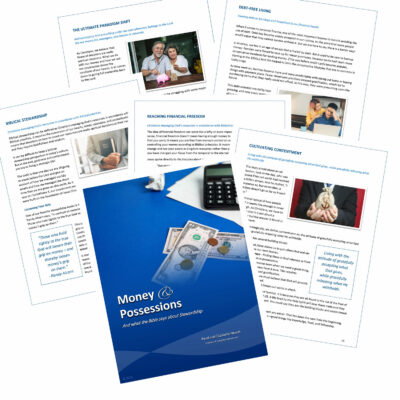One day we will all stand before the Lord and give an account of how we managed worldly assets and the short time we were given on this earth. Our investments will be tested by fire, and only those with a foundation built on Jesus Christ will stand the test and receive a reward.
“For no man can lay a foundation other than the one which is laid, which is Jesus Christ. Now if any man builds on the foundation with gold, silver, precious stones, wood, hay, straw, each man’s work will become evident; for the day will show it because it is to be revealed with fire, and the fire itself will test the quality of each man’s work. If any man’s work which he has built on it remains, he will receive a reward. If any man’s work is burned up, he will suffer loss; but he himself will be saved, yet so as through fire.” I Cor. 3:11-15, NASB
Randy Alcorn, author of one of my favorite books, Managing God’s Money: A Biblical Guide, says, “In contrast to materialism’s emptiness, there is joyful liberty in Christ. Those who hold tightly to the true God will loosen their grip on money – and thereby loosen money’s grip on them.”1
Are you keeping a tight grip on your possessions?
Stewardship:
Contrary to worldly thinking, the Bible tells us that we are not the ultimate owners of physical possessions or financial assets. We are to operate as managers of our time, energy, money, and talents. God is ruler over all…period.
“The earth is the Lord’s, and everything in it, the world, and all who live in it.” Psalm 24:1, NIV
“Both riches and honor come from You, and You rule over all…” I Chron. 29:12a, NASB
Biblical stewardship can be defined as Christians managing God’s resources in accordance with biblical priorities. This requires the conversion of our hearts, minds, calendars, and pocketbooks. It means decisions on how to invest our resources are really spiritual decisions that require faithfulness and wisdom.
“Let a man regard us in this manner, as servants of Christ and stewards of the mysteries of God. In this case, moreover, it is required of stewards that one be found trustworthy.” I Cor. 4:1-2, NASB
Are you strategically managing resources with an eternal mindset?
Counter-cultural Priorities:
The late Christian financial expert Larry Burkett made the unfortunate observation that “the Christian world is no different from the secular world when it comes to debt, bankruptcy, and divorce because priorities are misplaced.”
It can be difficult to keep a biblical stewardship perspective from day to day. We live in a world that promises comfort, security, and happiness from accumulating more stuff or building wealth. But increasing our lifestyle is not what life is truly all about.
“Then He said to them, ‘Beware, and be on your guard against every form of greed; for not even when one has an abundance does his life consist of his possessions.’” Luke 12:15, NASB
In the end, godliness and contentment are key. We brought nothing into this world, and we can take nothing with us when we die (I Tim. 6:6-7). We’ll avoid a lot of grief if we can keep our priorities straight.
“Instruct those who are rich in this present world not to be conceited or to fix their hope on the uncertainty of riches, but on God, who richly supplies us with all things to enjoy. Instruct them to do good, to be rich in good works, to be generous and ready to share, storing up for themselves the treasure of a good foundation for the future, so that they may take hold of that which is life indeed.” I Timothy 6:17-19, NASB
Are you taking hold of that which is life indeed?

Ultimately, living as a wise, biblical steward is for our own good. It’s the only way to make the best investments of the resources that God has called us to manage. It’s the best way to bring God glory and advance kingdom purposes.
Once we make the commitment to become faithful stewards, it is necessary to study what the Bible says about managing resources, generosity, and being prepared for the future. (You’ll notice that the majority of these verses cover physical assets.)
Managing Resources:
Our God-given resources include our time, energy, money, and talents. In all of these areas, it’s wise to monitor where we’re at and where we’re heading, by diligently working towards goals that align with biblical priorities and our God-given purpose in life.
“Know the state of your flocks, and put your heart into caring for your herds, for riches don’t last forever, and the crown might not be passed to the next generation.” Proverbs 27:23, NLT
“The plans of the diligent lead to profit as surely as haste leads to poverty.” Prov. 21:5, NIV
“For which of you, when he wants to build a tower, does not first sit down and calculate the cost to see if he has enough to complete it? Otherwise, when he has laid a foundation and is not able to finish, all who observe it begin to ridicule him.” Luke 14:28‐29, NASB
When it comes to our financial resources, many stewards have found a monthly spending plan, or budget, to be helpful in keeping track of their household expenditures and long-term goals. To be a faithful asset manager, it requires careful planning, routine monitoring, and living below your means.
Firstfruits:
We read in Proverbs 3:9-10, “Honor the Lord with your wealth, with the firstfruits of all your crops; then your barns will be filled to overflowing…” (NIV)
By first giving a portion of our income back to God, we acknowledge that He is the source of all our resources. This keeps our flesh from taking ownership, reminding us that we are stewards and not owners. As Randy Alcorn says, “[Tithing] should be a meaningful expression of our dependence upon God and gratitude to Him.”1
God promises to bless His children who follow this simple plan!
Generosity:
Some of the resources that God puts under our management is to be allocated for others. We shouldn’t use it all for ourselves, but rather look for ways to help others.
“You ask and do not receive, because you ask with wrong motives, so that you may spend it on your pleasures.” James 4:3, NASB
“As each one has received a special gift, employ it in serving one another as good stewards of the manifold grace of God.” I Peter 4:10, NASB
To kick it up another notch, we can practice sacrificial giving. Randy Alcorn says, “God’s money manager doesn’t ask, ‘How much more can I keep?’ but ‘How much more can I give?’ Whenever we start to get comfortable with our level of giving, it’s time to ask God if He wants us to raise it again.”1
How’s that for a challenge!
The Future:
Living paycheck‐to‐paycheck or using up all our financial resources is foolish. We can’t predict the future, but we should plan for one! It’s wise to set aside resources for unplanned mishaps or future emergencies.
“In the house of the wise are stores of choice food and oil, but a foolish man devours all he has.” Prov. 21:20, NIV
“Go to the ant, you sluggard; consider its ways and be wise! It has no commander, no overseer or ruler, yet it stores its provisions in summer and gathers its food at harvest.” Proverbs 6:6‐8, NIV
Another way of devouring our resources, and presuming upon the future, is to accumulate debt. While the Bible never prohibits debt, it cautions against debt.
“Owe nothing to anyone except to love one another…” Romans 13:8a, NASB
“The rich rules over the poor, and the borrower becomes the lender’s slave.” Prov. 22:7, NASB
Unnecessary debt-fueled spending is like telling God that He has not provided enough to cover all our needs. If a steward is managing God’s resources, and He has promised to provide all that we need, then a lack of funds is a result of poor management. And that’s why it is my personal conviction that consumer debt is not necessary for American families. Like with our government, too many of us simply have a problem with overspending.
With creative and strategic planning, mixed in with delayed gratification and personal discipline, Christians can live debt-free and not be in bondage to lenders. To find true financial freedom, we need to live within (and below) our means.
Finally, biblical stewardship points us to our eternal future. Heaven is our real home and this world is just a temporary dwelling place.
“Set your mind on the things above, not on the things that are on earth.” Colossians 3:2, NASB
“For here we do not have a lasting city, but we are seeking the city which is to come.” Hebrews 13:14, NASB
Our culture is completely focused on the things of this world, but as Christians we must keep the bigger picture in mind. The things of this earth will ultimately ALL pass away. Investing in treasures that last forever will pay the ultimate dividend!
“Do not store up for yourselves treasures on earth, where moth and rust destroy, and where thieves break in and steal. But store up for yourselves treasures in heaven, where neither moth nor rust destroys, and where thieves do not break in or steal; for where your treasure is, there your heart will be also.” Matthew 6:19-21, NASB
Randy Alcorn explains it this way, “Kingdom currency is the only medium of exchange recognized by the Son of God, whose government will last forever. That currency is our present faithful service and sacrificial use of our resources for Him.”1
When we finally reach our eternal home, may we all hear our Master say, “Well done, thou good and faithful servant: thou hast been faithful over a few things, I will make thee ruler over many things: enter thou into the joy of thy Lord.” (Matt. 25:21, KJV)
Be sure to watch this 3-minute video by LivingStrategically.com
to continue the study on biblical stewardship!
Highly Recommended Resources:
1 Managing God’s Money: A Biblical Guide written by Randy Alcorn and published by Tyndale House Publishers in 2011.
2 The Treasure Principle written by Randy Alcorn and published by Multnomah Books in 2001, updated in 2017.
This page contains affiliate link(s) from ChristianBook.com. If you choose to make a purchase, your price will not be affected and we receive a small commission. Thank you for your support!






